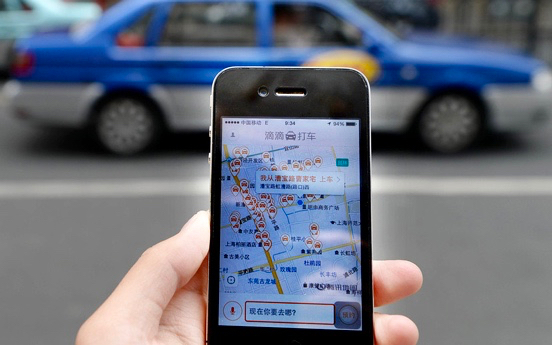
MADISON, Wis.—Apple’s $1 billion investment in China’s leading ride-hailing service company Didi Chuxing has surprised automotive industry observers. But it makes one thing clear: “It sort of tips Apple’s hand,” Egil Juliussen, director of research, Infotainment & ADAS at IHS Automotive, told EE Times. “Apple is developing driverless cars.”
That cool billion is likely to buy Apple everything it needs to know about ride-sharing, an installed base of customers for its future robo-cars, and a stronger foothold, both political and economic, in China.
With backing from Alibaba Group Holding Ltd. and Tencent Holdings Ltd., Didi is a rising star in China’s economy with the lion’s share of its taxi-hailing market.
Didi’s valuation has been skyrocketing, reportedly “upwards of $20 billion,” according to Reuters’ report. The ride-sharing service company’s very high valuation would make Didi the second most valuable Chinese tech startup after Xiaomi.
Nonetheless, over the last 12 months, Didi has been involved in an ever escalating battle with Uber to increase its number of rides and expand its network across China. In light of that pressure, Apple’s investment is a timely boost.
As Beijing tries to shift the economy toward higher-value services, Didi’s survival against Uber is viewed important in China.
At the same time, industry observers suspect that the deal with Didi might be even more critical to Apple. The iPhone maker is seeking to curry favor with the Chinese government to grow its business in China.
For Western companies to succeed in China, joint ventures or partnerships with local firms are essential, noted Juliussesn.
Why ride-sharing?
If Apple’s end-game is in self-driving cars, why start with a ride-sharing business?
Juliussen explained that Uber is doing its own R&D in self-driving cars. General Motors earlier this year announced a $500 million investment in Lyft. GM revealed plans to develop an on-demand network of self-driving cars with the ride-sharing service.
By teaming up with Didi, Apple creates an opportunity to help Didi design a ride-sharing app superior to Uber’s underwhelming version, explained Juliussen.
Meanwhile, the collaboration with Didi will provide Apple valuable insights into the business of driverless cars.
Uber’s edge now in the development of self-driving cars is believed to be its cumulative knowledge about customers, ride frequency, routes, and other aspects of ride-sharing. “To provide a ride-sharing company with driverless cars, it’s great to know all these things,” said Juliussen.
To top it off, Didi “can be a customer of Apple’s self-driving cars,” he added.
Source: eetimes.com
